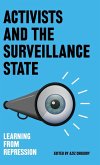Our public and private lives are under surveillance as never before. Whether we are shopping with a credit card, walking down the street or emailing a colleague at work, our activities are monitored. Surveillance has become more routine, more integrated and more intrusive. It is vital to ask how and why this should be so, and assess what the consequences are. Since September 11th 2001 surveillance has intensified further. Yet although individuals, groups, governments and states are more closely monitored, our security is not assured. The contributors to this volume explore the vast range of issues related to increased surveillance. What is going on in an area clouded by secrecy from the state and complacent reassurances from corporations? How do we track suspects and combat crime without also eroding our civil liberties and sacrificing our rights to privacy? Does electronic tagging of prisoners work? What are retailers up to with 'lifestyle profiling'? Focusing on these and other issues such as paedophilia, money-laundering, information warfare, cybercrime, and related legislation, this book spotlights benefits and costs of surveillance, and suggests how it is likely to develop in the future. Experts from Europe and America offer an international perspective on what is now a worldwide issue, making this book of interest to a wide range of people including legal practitioners, law enforcement agencies, policymakers and students across the social sciences.
Hinweis: Dieser Artikel kann nur an eine deutsche Lieferadresse ausgeliefert werden.
Hinweis: Dieser Artikel kann nur an eine deutsche Lieferadresse ausgeliefert werden.








